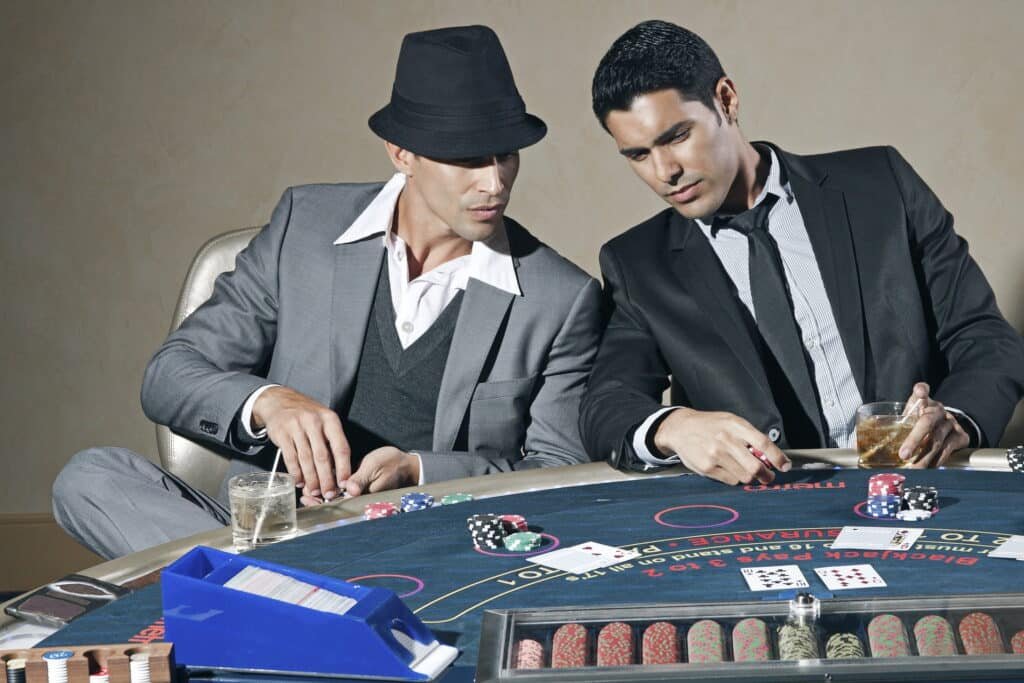
Few of you have ever had the opportunity to play a few hands of poker during a job interview. But far from being just another recruiting joke, this test highlights a certain number of qualities that are essential for the exercise of responsibilities.
In the same way as the parallel between the game of chess and corporate strategy, the one between poker and management is becoming a classic, so don’t wait for more to train yourself online. As we will see in this article, playing poker has many advantages and permits to development of a lot of competencies useful to manage a team, a company or a whole business. You can access here to the best online casino games website in Ireland, and start your apprenticeship. Discover some of the qualities acquired during the rigorous practice of the game which is also required of any entrepreneur, executive or top manager.
Having a logical mind
“The only certain and immutable thing is that nothing is either certain or immutable”. The poker player understands this famous quote from John Fitzgerald better than anyone else. Yet he knows how to take advantage of it in his way of thinking by evaluating his chances of success with each move.
Similarly, a responsible leader can calculate the risks and reduce the uncertainty of any action, even though he knows that his right to make mistakes may cost him dearly. While every decision is a gamble, it should not lead him or her to refuse to take any action. Rather, he must calculate his chances or “odds”, weigh the pros and cons, and then bet.
Keeping a cool head
A good poker player will never allow himself to reach the “tilt”, that is, the moment when his emotions have taken control of his decisions. Just because large sums of money are at stake doesn’t mean you should let fear or excitement guide you: you have to be able to detach yourself and stay focused.
A professional must know how to keep control of his emotions, even if he is risking a lot. Champions sometimes say that you have to know how to play the same way when the stakes are a few tens of euros and when they are a few tens of thousands of euros. It is also crucial to know how to recover quickly after a failure and regain control of the game.
Knowing how to read the opponent’s game
When a poker professional reads an opponent’s game, it means that he is able to decipher his hand simply by deducting it from his previous actions (height of his bets, thinking time) and his behaviour. He analyses meticulously hand after hand the gestures, facial expressions, and the ways of betting according to the cards received.
This ability is not only used to calculate his chances of winning the move, but it also allows him to really predict the move. It is also used to estimate what kind of risk the opponent is willing to take or not according to his cards.
Knowing how to take your time
Losing a few hands at the beginning of the game against an opponent is not necessarily a bad thing. In fact, the winners in major poker competitions are not those who have a much larger stack of chips than others in the first half hour. Instead, it’s all about taking your time and observing in order to develop a strategy that will get you to the final table.
In the same way, only a long-term strategy in a company makes it truly profitable in the long run, and it cannot be summed up in a few ephemeral “quick wins”.
Managing resources well
In poker jargon, this is called “managing your bankroll”, which is the amount of money you have allocated to yourself exclusively for the game. Keeping an eye on your stack of chips and not playing beyond your means is one of the keys to success at the tables.
Just like an entrepreneur or a manager who has to manage a budget, you have to know how to distribute your money and, above all, don’t get trapped any bigger than yourself. The important thing is to bet according to your resources, those of others and your hand. And also in your private life, managing your money help you to live your best life.
Dealing with adversity
Losing is part of the game. Poker players often tell each other about their “bad beats”, those sublime hands that they had a 99.9% chance of winning, but fate decided otherwise. When the luck hasn’t been there, or when one has fallen on stronger than one is, all that remains is to retire with dignity and humility. There will be other opportunities to recover through patience and perseverance.
The important thing is to learn from one’s mistakes, to transform them into constructive experiences and finally into victories.
